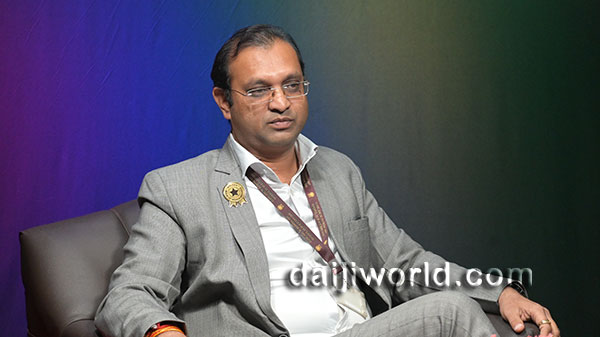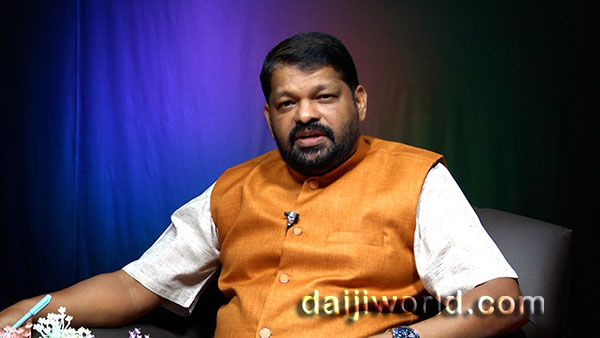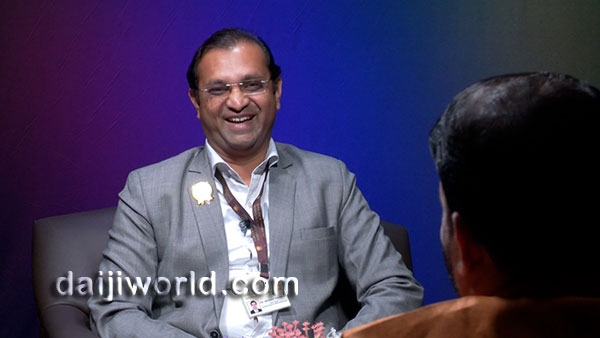Thejaswi U Poojary
Daijiworld Media Network - Udupi
Udupi, Sep 2: The Golden Book of World Records, a US-based platform documenting extraordinary human achievements, has been steadily building its presence in India. In an interaction with Daijiworld.com, its Asia head Dr Manish Vishnoei highlighted how recognition, rather than monetary rewards, is the true value of setting a world record.
“The Golden Book of World Records recognizes and documents achievements worldwide. Interested applicants can apply through our website, after which our team reviews and confirms whether the proposed record can be attempted,” Vishnoei explained.



On his visit to coastal Karnataka, he praised the region’s culture and talent. “Coming from Delhi, where we deal with traffic and pollution daily, being here feels like winning a lottery. The people are cooperative, gentle, and talented. Young achievers like Tanushree, Gangadhar, who swam against sea waves, and Yashwanth, whose singing reminded me of S P Balasubrahmanyam, reflect the extraordinary talent here.”
Vishnoei distinguished between national and global record platforms: “Limca Book of Records is a national platform for India, while Guinness World Records and Golden Book of World Records are international. We function independently but offer recognition on the world stage.”
He likened the organization’s structure to India’s governance. “Just as the country has states with chief ministers, we divide the world into continents with one head each. As Asia head, I oversee this region, while India has its own representative. Unlike other record books, once an achiever’s name is entered in our records, it is never removed—even if the record is broken. New records appear on top, but earlier ones remain.”
The Golden Book provides multilingual access to make participation easier in countries where English is not widely spoken. The core criteria for a record, Vishnoei said, are that it must be unique, measurable, breakable, and ideally on a large scale.
Specialised expert panels guide evaluation across diverse fields such as medicine, engineering, and the arts. “For instance, on September 5 there will be a record attempt in Ahmedabad for constructing the world’s largest temple. Since I do not have full technical knowledge, I rely on our experts,” he said.
Process and verification
The head office of the Golden Book of World Records is in Texas, USA, with its India office in Greater Noida. Applications are reviewed through email and a detailed form. Once approved, applicants receive rules and regulations, and must submit video proof of the attempt.
Vishnoei stressed strict verification: “We always require a visible clock in performance videos to ensure timing is accurate and unalterable. In Bharatanatyam dancer Deeksha’s record, which extended the longest performance from 170 to 216 hours, we followed this system. Multiple reviewers examine the video before a final certificate is issued.”
The organization provides each record-holder with a kit that includes a certificate, medal, badge, official T-shirt, key ring, and stickers.
Risks and rewards
Attempting records, Vishnoei cautioned, comes with risks. “Some succeed and gain confidence, others fail and may feel discouraged. We always insist on proper medical support for long-duration records. Our role is to encourage and guide, not to restrict.”
He contrasted awards with records: “Awards usually bring cash prizes, but records bring recognition. Recognition is more valuable—once your name is established, opportunities follow.”
Vishnoei urged aspiring achievers not to equate success only with money. “True success follows talent. Money comes later. Discover your ability, showcase it, and let the world see who you are.”
For Full Video